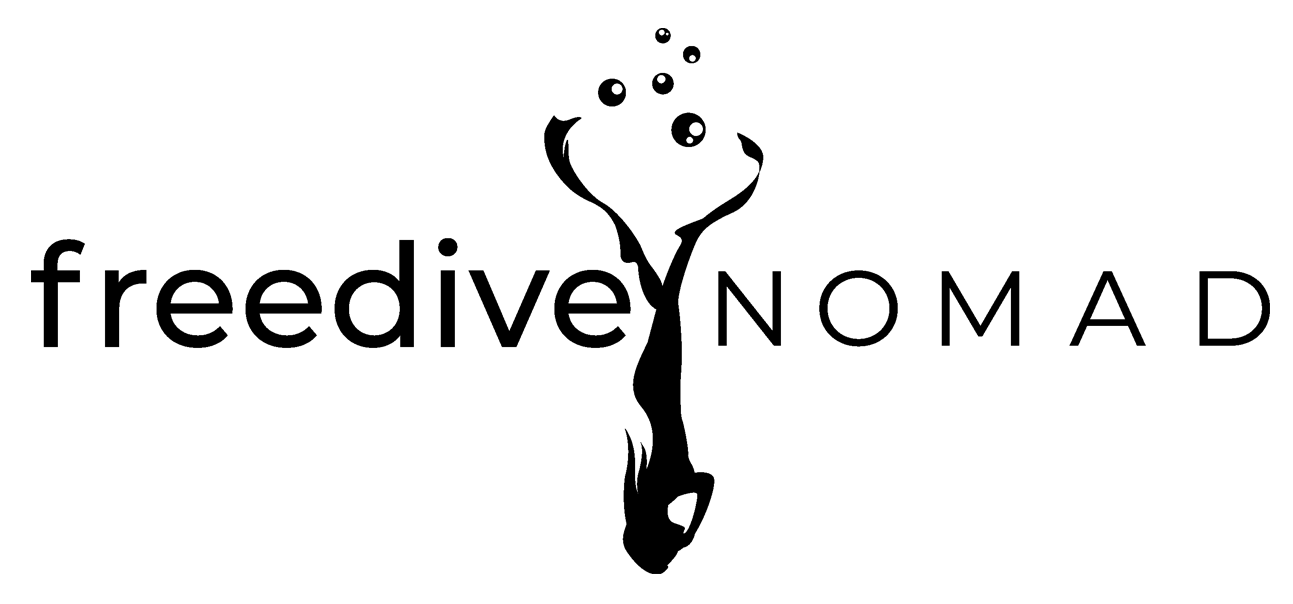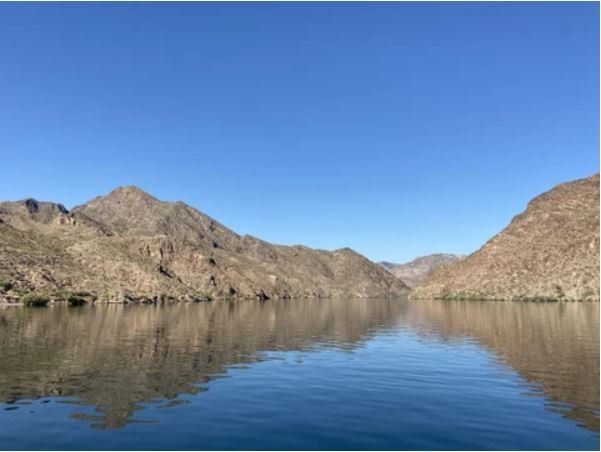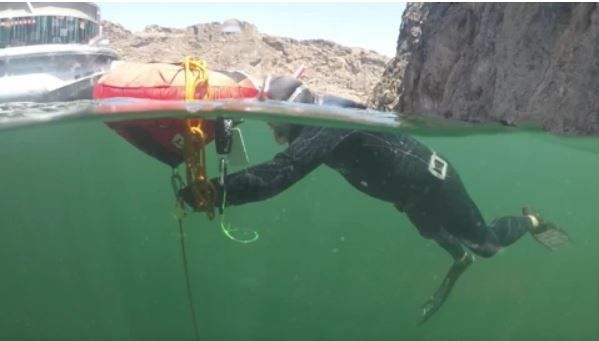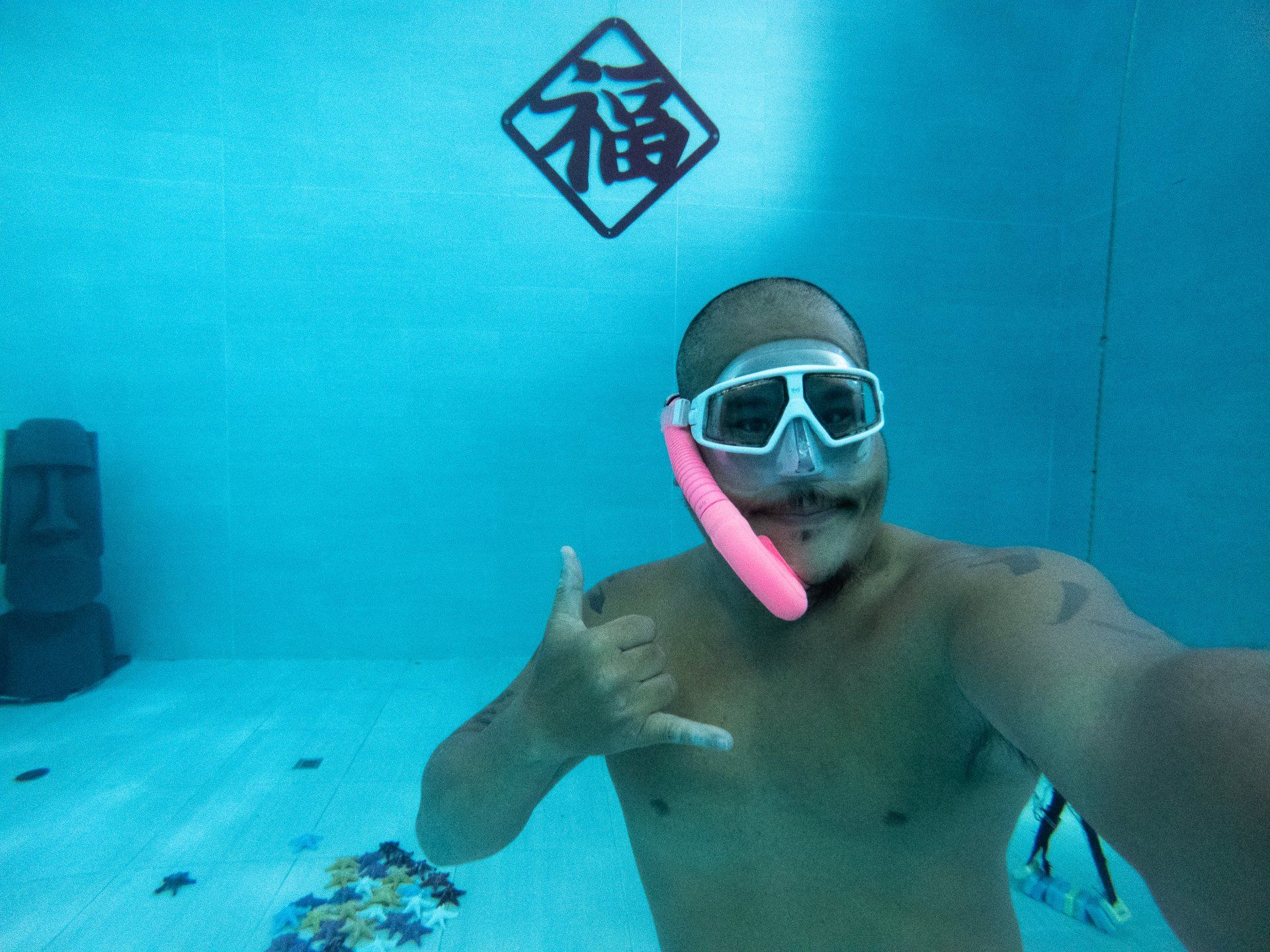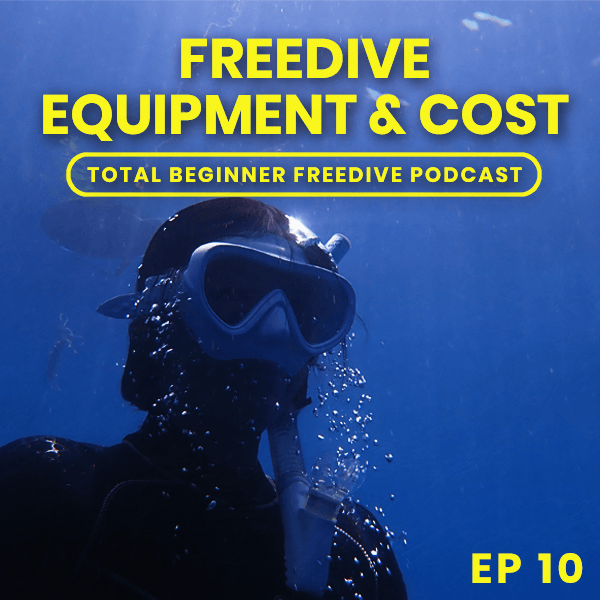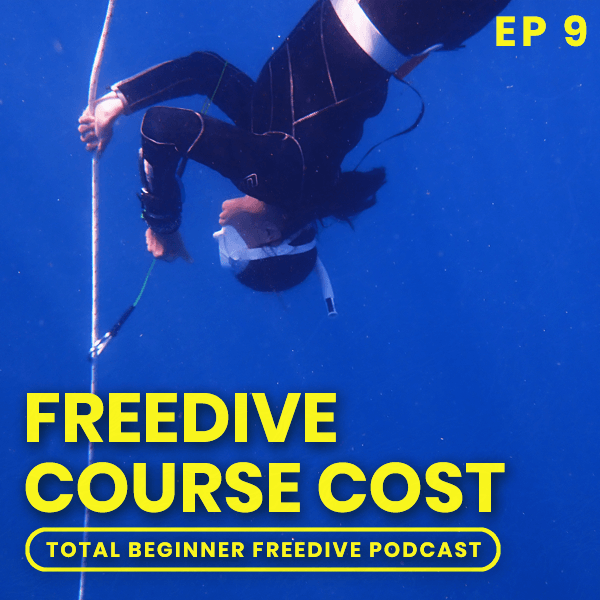Raymond Ko • May 16, 2021
LEARNING FREEDIVING IN VEGAS - BEGINNER COURSE EXPLAINED
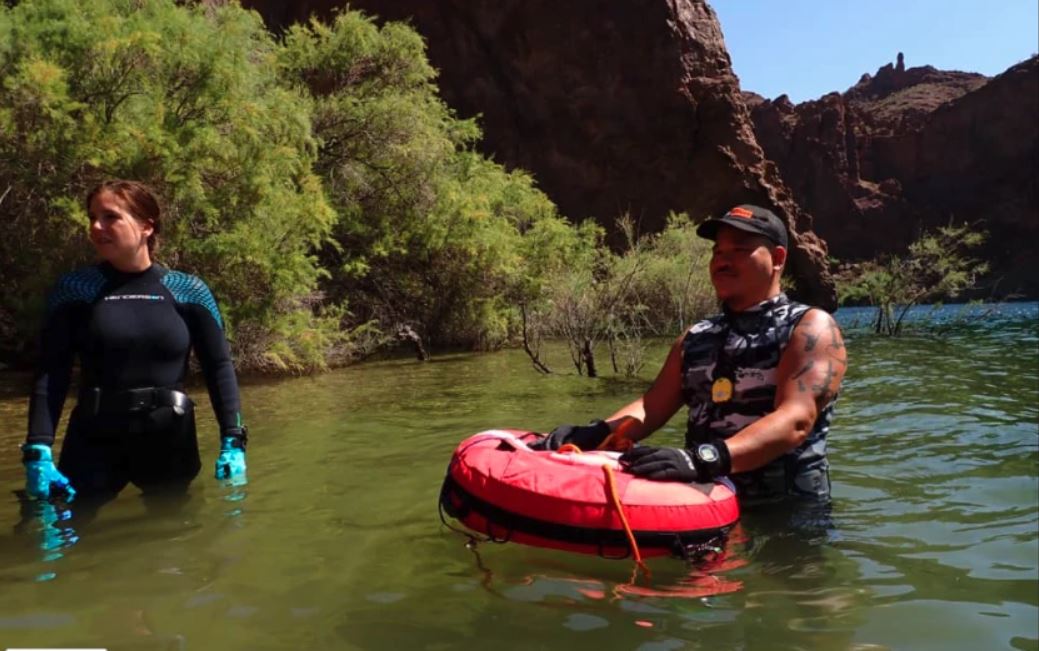
BEGINNER FREEDIVE COURSE IN LAS VEGAS
This is a blog post I wish someone would’ve written about what a beginner freedive course looks like.
UPDATE : I've moved to Taiwan in November 2020 and thus I am no longer teaching in Las Vegas, but you can find my Taiwan site here. If you are interested in learning freediving in Vegas please check out my fabulous mermaid friend Rachel here.
DM me on IG @freedivenomad or e-mail freedivenomad@gmail.com
“Scuba divers look outside, freedivers look inside.” – Unknown
BEGINNER FREEDIVE COURSE REQUIREMENTS
The requirements for a freedive course are quite basic. You need to be able to swim non-stop for 200m or 8 lengths of a 25m pool.
A medical questionnaire and release form will need to be filled out and signed, if you answer “YES” to any of the questions on the medical questionnaire, you will need the form signed off by your physician clearing you medically for freediving.
Lastly, you need to be comfortable in the open water and be comfortable wading in the water while not being able to see the bottom (this is a reason a lot of my friends don’t want to learn freediving) Click here to read my blog about how freediving help me get over some of the fears of the ocean. If you are afraid of the open water, you can take the first two components of a freedive course below and then either 1) Go somewhere like in a Mexican cenote where you can see the bottom to finish your course or 2) not continue on satisfied to learn the skills to hold your breath underwater safely.
COMPONENTS OF A BEGINNER FREEDIVE COURSE
There are three components to a beginner freediving course
1. THEORY & DRY TRAINING - you will be sent a manual electronically and study that manual at home, this will be about 2-3 hours of studying. After you are done we will go onto an online video class (1-1.5 hours long) either through Zoom or some other platform where we will do a knowledge review of the concepts and theories learned in the manual. In the manual you will learn about the physics and physiology of freediving, relaxation and breathing techniques, safety measures and freediving equipment.
After the knowledge review, you will then be taught relaxation method before a breathhold, one full breath (how to take the biggest breath before a breath hold), equalization for freediving (its different than scuba) and recovery breathing (technique to quickly recover your O2 levels).
2. CONFINED WATER SESSION - this is held either at a pool or on the lake in calm waters about chest high. You will perform a static breath hold in water (the longest you can hold your breath while remaining still face first in the water) for 1.5 to 2 minutes (depending on agency, but more of that later). You will then be taught proper finning technique and do a Dynamic Breathold where you fin 25-40 meters horizontally through the water on a breathold. You will also learn how to safety and rescue a diver (really important). This will typically take about 3-4 hours depending on how many students (maximum four students per course).
During the COVID times its been a challenge securing pools to do this so we either go to Cottonwood or Nelsons’ Landing on Lake Mohave to do this.
3. OPEN WATER SESSION - During the first open water session we will work on your equalization and your duck dive, which is a technique for efficient entry into the water for depth. During the second open water session you will be taught to dive for depth and required to reach 12-16 meters (40-52 feet) in depth. You'll also learn how to safety and rescue a diver. We bring out with us a freediver buoy which has a rope and bottom weight attached (see photo below) which is an important safety mechanism. This is known as line diving. These two sessions will also take about 3-4 hours depending on how many students.
We hold the open water sessions either at Nelson’s Landing or Cabinsite on Lake Mohave.
FREEDIVE CERTIFYING AGENCIES
There are about a dozen freedive agencies in the world. The three most popular in the United States are Performance Freediving International (PFI), Freedive Instructors International (FII) and Professional Association of Diving Instructors (PADI).
I have instructor certifications for three agencies: Molchanovs, PADI and AIDA
AIDA is a non-profit freediving agency, which is also the largest and most recognized agency in the world. They are also one of two agencies which officiates competition.
PADI is the most popular and recognized scuba diving agency in the world and provides a solid foundational freediving program
Molchanovs newest kid on the block started by a mother-son team who also were the top freedivers of their time. The agency is advised by a group of some of the top minds and athletes in freediving. They also provide continuing education and training program, something which sets itself apart from other programs.
Whether you choose AIDA, PADI or Molchanovs, I teach them virtually same (90%) but the performance requirements are slightly different.
I can talk you through which agency fits your needs best. If you would like to learn through FII there is an FII instructor in Vegas who I can refer you to.
FREEDIVING LEVELS
Across the dozen agencies, most of their recreational freediving programs can be split up into three levels
Level 1 - Beginner level
Level 2 - Advanced level
Level 3 - Master level
Level 1 and level 2 can theoretically be taken back to back depending how comfortable you are in the water and how you performed on the Level 1 course while level 3 would require some level of preparation.
The first two levels are all about bringing out your innate ability to freedive. Level 3 will require some level of training and adaptation.
As you progress, you will learn more advanced technique that will allow you to hold your breath longer and dive deeper.
As you move through each level you will be required to do deeper dives, longer static breatholds and longer dynamic breatholds in order to be certified.
WHAT ABOUT FREEDIVING EQUIPMENT FOR BEGINNERS?
I don’t advise beginner freediving students to buy any freediving equipment before their first course. I did not buy any freedive equipment until after my first course and I am still using much of that equipment to this day. Once you take the first course then you’ll get a better idea of how much you love it or not and can determine your budget from that assessment.
I prefer students to either rent and/or use existing equipment from other sports. For example do you have a wetsuit from surfing? Do you have mask and snorkel from scuba? Do you have fins laying (closed foot pocket best) around from your snorkelling trip to Hawaii?
You could also head to 3rd Reef in Henderson (https://www.3rdreefdivers.com/) to rent most of the equipment as well.
What equipment is required for a freedive course?
Mask, snorkel, weight belt, closed foot pocket fins and wetsuit. Even during the summer, a wetsuit is highly recommended in the lakes near Vegas as though the surface temperature (80-90° F) is comfortable there is a thermocline around 8-10 meters that can be as low as 60° F. Burrrrrrr……..
If you really want to buy some budget equipment, Amazon and Decathlon have some great bargains, drop me a line and I can help you decide on what’s best for you.
I hope that was helpful for you to help visualize what a freediving course will look like. To read more about freediving in Las Vegas check out my previous blog here
If you have any further questions, I’d be more than happy to answer them, please direct them to the contacts below:
E-mail - freedivenomad@gmail.com
Instagram - https://www.instagram.com/freedivenomad/
Facebook - https://www.facebook.com/freedivenomad
Dive safe and NEVER DIVE ALONE!
